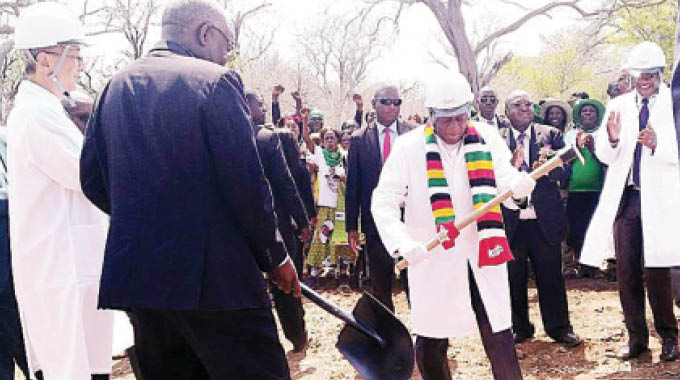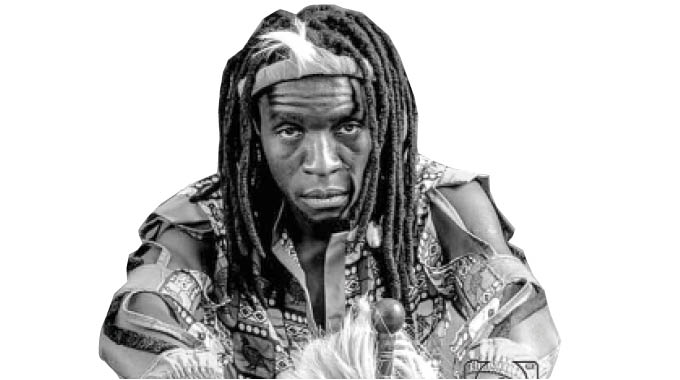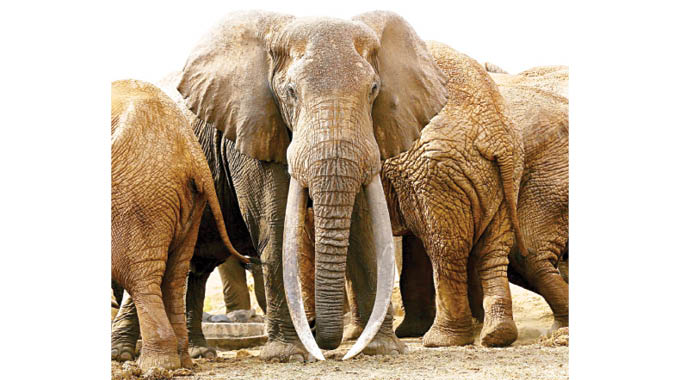President threatens CITES pull-out . . . Sadc’s ivory sales proposal rejected in Geneva

Walter Nyamukondiwa in Marongora
PRESIDENT Mnangagwa has said Zimbabwe is contemplating pulling out of the Convention on International Trade in Endangered Species of Wild Fauna and Flora (CITES) to fully benefit from its conservation of natural resources.
At its 18th meeting of the Conference of the Parties to CITES underway in Geneva, Switzerland, the body rejected a proposal by Sadc countries to open trade to clear existing stockpiles of ivory, with Zimbabwe sitting on US$600 million worth of stock.
Speaking at the ground breaking ceremony for the upgrading of a 6,5-kilometre stretch along the Harare-Chirundu Highway financed by Japan, President Mnangagwa said Zimbabwe was going to express its reservations before pulling out of the body, if need be.
He said clearing of the ivory stockpile would aid conservation efforts through procurement of equipment and fences for buffer zones to curtail human and wildlife conflict.
“We have our friends like Japan and China whom we can negotiate with to buy our ivory after we express our reservations with CITES,” said President Mnangagwa, speaking in Shona.
“We are sitting on ivory stockpiles worth US$600 million. It’s a lot of money we can use for big projects. Our wild animals are being discussed in Geneva (at the on-going CITES summit), an irrelevant place to the animals. We now know what to do about the issue.”
President Mnangagwa said it was unfair that Zimbabwe carried the burden of conserving its wildlife, but did not benefit from the resource.
“CITES is made up of people who have exhausted their wildlife resources and those who have managed to conserve them,” he said. “Europeans have consumed all their animals, but they want to set rules for us who have managed to conserve theirs.
“They bar us from killing our animals for selling ivory, but they want us to protect them from being poached.”
President Mnangagwa said the country needed resources to train rangers to look after the animals and the erection of fences to demarcate buffer zones to minimise human and wildlife conflict.
“We want the hides, ivory and other essentials to be sold so that we get money to invest in looking after the animals,” he said. “At the moment we have more than 84 000 elephants for a carrying capacity of around 56 000.
“We have an excess population of elephants, but they bar us from selling. Just the day before yesterday they were saying we cannot sell products from our wildlife, but we rejected that. We cannot be denied such a privilege by people who no longer have the elephants. They now know elephants from pictures and films.”
President Mnangagwa said Zimbabwe was looking forward to cooperating with Japan in promoting sustainable wildlife management.
“We also look forward to partnering with Japan to build greater resilience in our agriculture sector, and issues related to sustainable management of wildlife resources should be strengthened,” he said.
CITES rejected the proposal by Zimbabwe, Namibia and Botswana to open the trade of ivory to clear existing stockpiles, alleging that it would encourage poaching and reverse gains in wildlife management.
Yet the argument from the Sadc countries has always been that they need the funds to help protect the animals from poaching and enhance conservation efforts.











Comments